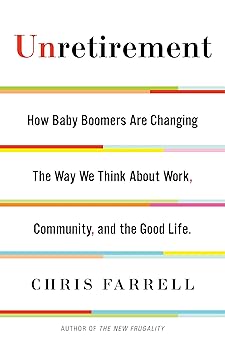
This debut novel is about the transformative love and friendship between two young men, Jake and Theron, during a pivotal teenage summer in rural New England. It's a story that spans over two decades, from their first meeting in New Hampshire to the pivotal night in New York City that changes the course of their lives forever. The novel takes us on a journey through the complexities of human relationships, love, and self-discovery.
The author masterfully weaves together themes of identity, anxiety, insecurity, and the limits of human connection. We witness the glorious, and often painful, experiences of adolescence, from the simplicity of a childhood joke to the devastation of insecurity. The narrative is infused with rare, poetic talent, making it an electrically alive and exquisitely tuned love story. We see Jake and Theron's story unfold through the eyes of Theron, who is struggling to come to terms with the trauma of loss. The author's use of vivid imagery and evocative language brings to life the characters' experiences, making us feel like we're walking alongside Theron as he navigates his way through the complexities of life.
As the story unfolds, we're reminded that true beauty and love often reside in the fragility and complexity of human relationships. The novel's exploration of the mysterious, porous lines between ourselves and the people we love makes for a hauntingly beautiful and introspective read. August Thompson's writing is both poignant and mesmerizing, making this debut novel a must-read for anyone looking for a love story that will capture their heart. With its rare talent and exquisite lyricism, this novel is sure to leave a lasting impression.
I recently finished reading a debut novel that has stayed with me long after I finished the book. The story follows the transformative love and friendship between two young men, Jake and Theron, during a pivotal teenage summer in rural New England. As I read through the pages, I couldn't help but think of my own summers spent in rural Maine with my family. The nostalgia washed over me, and I found myself transported back to the simplicity and freedom of those carefree days.
The author's writing is raw, relatable, and heartbreaking. I found myself invested in Jake and Theron's story from the very start, feeling their joys, fears, and insecurities as if they were my own. The way the author explores the complexities of human relationships, love, and self-discovery is nothing short of remarkable. We witness the ups and downs of adolescence, from the comfort of a childhood joke to the crushing weight of insecurity. The narrative is infused with rare talent, making it an electrically alive and exquisitely tuned love story. I was continually surprised by the author's ability to capture the nuances of human emotion, to make me laugh and cry in equal measure.
As I closed the book, I couldn't help but feel a sense of awe at the author's raw talent and emotional honesty. The novel's exploration of the mysterious, porous lines between ourselves and the people we love is both hauntingly beautiful and introspective. I found myself pondering the themes and emotions that lingered long after I finished reading, replaying the characters' experiences in my mind. The writing is both poignant and mesmerizing, making this debut novel a must-read for anyone looking for a love story that will capture their heart. The author's prose has left an indelible mark on me, and I have no doubt that this is just the beginning of a remarkable writing career.
Rating: 2.8 / 5.0
This debut novel is a poignant and beautiful love story that spans two decades, exploring the complexities of human relationships, love, and self-discovery. The author masterfully weaves together themes of identity, anxiety, insecurity, and the limits of human connection, bringing to life the characters' experiences through vivid imagery and evocative language. The narrative is infused with raw talent, making it an electrically alive and exquisitely tuned love story. As the story unfolds, we're reminded that true beauty and love often reside in the fragility and complexity of human relationships. The writing is both poignant and mesmerizing, leaving a lasting impression on the reader.























![DREAM BIG [Hardcover] Mukesh Jindal](/post/must-read-books-for-florida-retirees-planning-your-finances-future-adventures/images/image_71YipCX8afL._SY342_.jpg)








